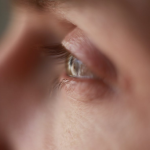Our eyesight is one of our most precious possessions, however, many of us take our eyes for granted. Your eyes are essential for sight and awareness, and without them, you would quickly become unable to do many of the things that you take for granted in your daily life. As humans, our eyesight naturally deteriorates as we age, but there are certain things that you can do to keep your vision sharp and your eyes in healthy condition. Read on for our top tips for optimal eye health.
Table of Contents
Tip #1. Get Regular Check-ups:
Just like your overall health or dental health, it’s important to have your eye health and vision levels regularly checked. You should aim to visit your optometrist at least once every couple of years to undergo a vision test and determine whether you need any sight aids such as contact lenses or glasses. Even if you already wear glasses or contact lenses, it’s important to keep up with your regular optical appointments as your prescription may change over time and new lenses will be needed.
Tip #2. Use Any Sight Aids as Prescribed:
If your visit to the optometrist has resulted in you being given glasses or contact lenses to wear, it is important that you do so in accordance with the medical instructions that you’ve been given. The type of glasses or contact lenses you have, along with what you’ll need to use them for, will depend on your type of vision and any issues with your sight, such as long or short-sightedness. Common activities that you will likely be required to wear glasses or contact lenses for include driving, reading, using electronic screen devices, or watching TV. Consult your optometrist if you are uncertain of when you should and shouldn’t be wearing your glasses or contacts.
Tip #3. Eat a Healthy Diet:
The foods that you put into your body do not affect your overall health, energy, and weight – they can also impact your vision and optical health. Eating healthy, balanced meals as often as possible will give your body the nutrients that it needs to keep your eyes healthy and your vision sharp. Ideally, you should aim to include fish in your meals at least twice per week. Fish is a rich source of omega-3 fatty acids, which have been proven to reduce the risk of dry-eye syndrome and improve overall optical health. If you’re in favor of eating fish, you can try fish oil supplements as an effective alternative.
Tip #4. Keep Your Eyes Protected:
There are several activities that can put your eyes at risk, whether you’re working with heavy machinery or taking a morning swim in the local pool. When swimming, it’s important to always wear goggles to protect your eyes from the chlorine in the water, which can cause discomfort and irritation. If you’re working with heavy machinery, doing carpentry or welding, it’s vital to always wear the right protective eyewear for the job. A strong, durable pair of goggles for this kind of work is essential to protect your eyes from debris, which can cause painful corneal abrasions. Read more about scratched cornea symptoms and how to mend them.
Tip #5. Protect Your Eyes from the Sun:
During hot days, it’s not just your skin that needs to be protected from the sun’s harmful UV rays – your eyes are also at risk. Wearing sunglasses will protect your eyes from the harsh glare of the sun, along with making it easier for you to see in bright sunlight. In addition, a good pair of sunglasses will also keep your eyes shielded from the drying effects of the wind, which quickly soaks up the moisture from your eyes and can lead to several issues. If you already wear eyeglasses, you can also opt for fitover sunglasses, which can be worn directly over your frames.
Tip #6. Keep it Clean:
Keeping your face clean and fresh on a regular basis isn’t just important for your skin, but also for your eyes. If you wear eye make-up, removing it every night is vital – not only will wearing your makeup overnight clog up your pores and lead to skin issues; sleeping in eye makeup puts you at a higher risk of scratching your cornea if a small piece winds up in your eye. For removing eye makeup, use an unscented, gentle cleanser that won’t irritate your eyes. Micellar water is an excellent choice since it’s gentle on both eyes and skin.
Tip #7. Take Health Supplements:
In addition to a healthy and balanced diet, you may wish to consider taking health and dietary supplements to improve your optical health and vision. Multivitamin supplements have a wide range of uses and can improve your overall health at the same time. Vitamin A is an essential nutrient for optical health, which is especially good at improving your night vision. Along with being available in supplement form, you can also get your vitamin A from foods such as sweet potatoes, carrots, kale, beef liver, eggs, spinach, broccoli, and butter. Bilberry supplements can also be useful; these contain compounds known as anthocyanosides, which can help to protect the retina.
Tip #8. Take Regular Breaks:
Today, many of us spend our working day staring at a computer screen or reading from a page. Prolonged reading or use of a PC, laptop, tablet or smartphone can lead to eye strain, so it’s important to take regular breaks. In addition to keeping your eyesight healthy, there are several other benefits of taking a regular break – it keeps your mind refreshed and gives you the chance to go for a stroll to get rid of any muscle tightness, aches, or pains. Set an alarm for every thirty minutes as a reminder to look away and focus on something else for a while. Every couple of hours, take a longer break to get up, rest your eyes and stretch your legs.
Tip #9. Keep Your Blood Pressure Low:
If you have high blood pressure, this can be a huge risk factor for your eyes. If left unchecked, high blood pressure can cause serious damage to vessels in the eye, leading to issues with eye health and vision. You can keep on top of your own blood pressure levels with an at-home monitoring kit. The best way to keep your blood pressure at a healthy level is through a healthy, balanced diet and plenty of exercise.
Tip #10. Exercise Regularly:
Lastly, getting in more workouts at the gym isn’t just a great way to build strength and lose weight. In fact, some evidence has been found to suggest that regular physical activity can reduce intraocular pressure in patients with glaucoma. One study found that walking briskly for forty minutes four times each week enabled individuals with glaucoma to lower their intraocular pressure enough to safely stop taking medication for their condition. Although there’s no concrete proof just yet, the findings of this study and others have caused some to suggest that exercising regularly could be effective in minimizing your risk of developing glaucoma in the future.
You only get one set of eyes, and you’ll need them for all your life. Look after your eyes with regular check-ups, the right sight aids, and a healthy, balanced lifestyle and diet. Leaded glasses, or radiation glasses, protect your eyes from the harmful effects of radiation.
If you liked these tips, we’d love to hear from you in the comments!






